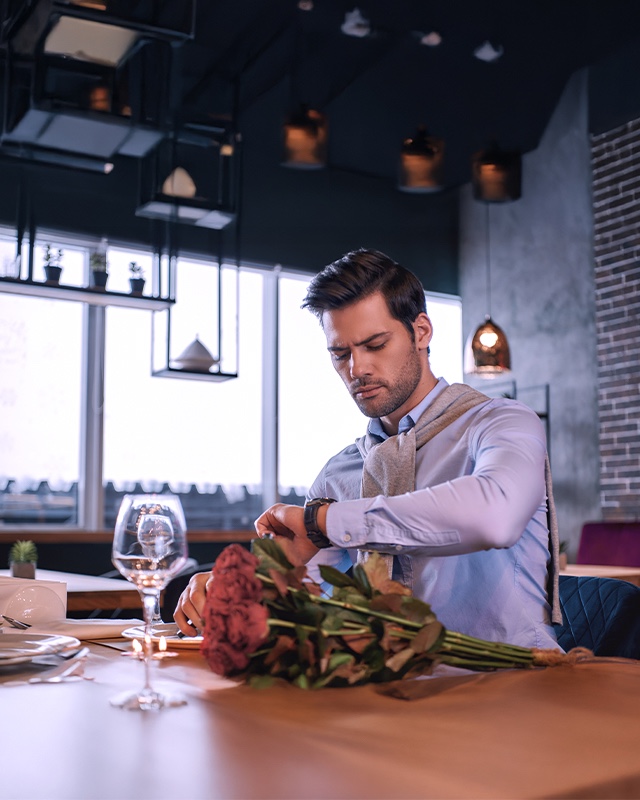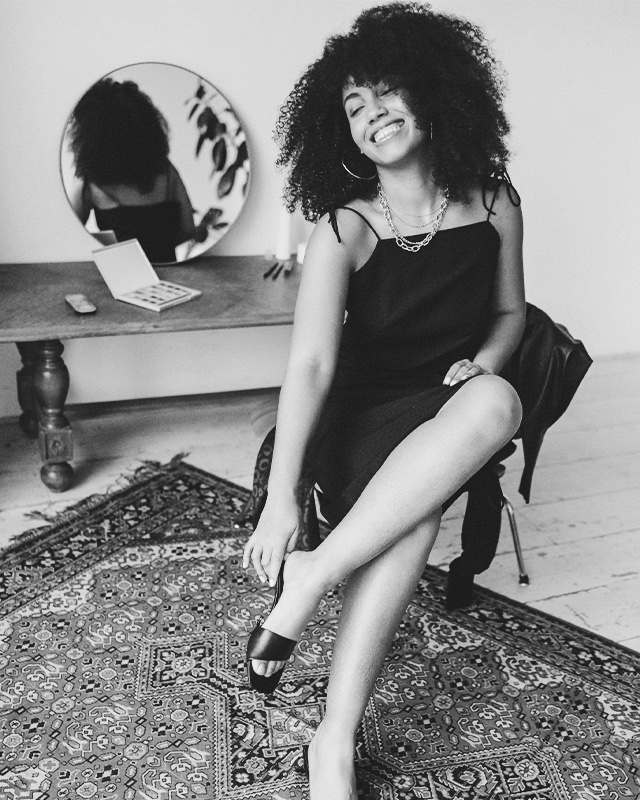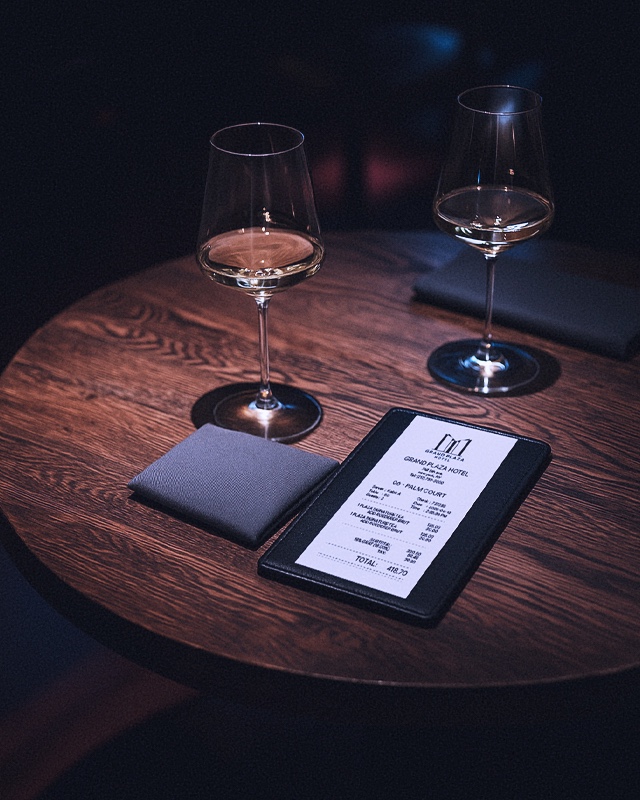When it comes to the intricate game of dating, where a simple like may just lead to Mr. (or Ms.) Right (or at least Right Now), the capacity to articulate one’s intentions with both clarity and charm is an endangered art. Gone are the days of Shakespeare’s sonnets and Cyrano-like silver-tongued musings, and for the uninitiated, the prospect of mastering the verbal minefield is justifiably daunting. To alleviate some of the stress and confusion, we compiled a FirstDate guide to a contemporary language of love, a collection of phrases designed to ignite passion, foster connection, and, when necessary, gracefully bow out.
An Opening Gambit
The art of the opening line is delicate and fraught with potential pitfalls. Ideally, one must balance confidence and humility, interest and nonchalance. The goal is to intrigue, not to overwhelm.
“May I get you a drink?” may seem pedestrian, but its simplicity is its strength. It’s a classic for a reason, offering a gesture of goodwill and an opportunity for further interaction. However, consider this variation for those aiming for a more sophisticated approach: “This [insert a cocktail of you choosing] looks intriguing. Are you familiar with it, or should I surprise us both with something off-menu?” This approach demonstrates observational skills, invites opinion, and suggests a sense of adventure – all in one neatly packaged sentence.
For the literary-minded or movie fan, a well-placed quote may work wonders. “You had me at hello” (Jerry Maguire, 1996) is well overplayed, but “I’m not a smart man, but I know what love is” (Forrest Gump, 1994) is specific to elicit a chuckle and open the door to a discussion about favorite films and scenes. The key is to tailor your approach to the environment. Don’t be scared to blend charmingly cheesy with downright adorable to break the ice.
The Art of the Ask
Once initial contact on a dating app has been established, the next hurdle is to parlay the connection into a proper date. This is where some falter, stumbling over their words or resorting to vague suggestions that leave both parties uncertain.
“Want to meet up for a drink sometime?” is functional but blunt and lacks imagination. Instead, try, “I know a hidden speakeasy that serves the most outrageous cocktails this side of Prohibition. Care to join me on a little adventure this Friday?” This approach suggests a specific activity and hints at a sense of exclusivity and excitement. It’s an invitation not just to a date but to an experience. It also positions you as an IYKYK kinda person who actually knows stuff.

If you’re not interested in the suggested activity, it’s perfectly acceptable to decline the invitation. A polite ‘Thank you for the offer, but I’m not a big fan of fusion cuisine’ or ‘I appreciate the invitation, but I’m not available next week’ can help you express your disinterest while maintaining respect and politeness.
Remember, specificity is critical. “Would you care to join me for coffee?” becomes infinitely more appealing when phrased, “There’s a charming little bistro around the corner that roasts their own beans and makes a mean lavender latte. Care to explore it with me this Saturday afternoon?”
The Compliment Conundrum
When it comes to compliments, sincerity is paramount. A well-timed, expertly aimed compliment is a surefire way to brighten someone’s day while deepening the connection. Still, insincerity is easily detected and will quickly curdle any possibility of a budding romance.
“You look great” is serviceable if generic. Instead, try, “That tone of blue matches your eyes—it’s quite mesmerizing.” This shows attention to detail and suggests more profound observation and appreciation. It shows that you are interested and in the moment.

When receiving a compliment, it’s important to acknowledge it graciously. A simple ‘Thank you, that’s very kind of you to say’ can go a long way in reciprocating the positive energy. Remember, a compliment is a gift, and it’s polite to accept it with grace.
Remember, the best compliments often recognize effort or character rather than innate qualities. “Your ability to make everyone in the room feel welcome and included is remarkable” is far more impactful than a simple “You’re nice.”
Date Dialogue
Once a date is secured, the art of conversation comes into play. The goal is to balance showing genuine interest while avoiding interrogation-style questioning. “So—what do you think of this place?” is a safe opener, but why not elevate it? “If you were to design your perfect dining experience, what elements from this restaurant would you retain, and what would you change?” This type of question invites opinion and allows for a glimpse into your date’s tastes, preferences, and sense of discernment.
As the evening progresses, deeper topics may be broached. “What’s the most unexpected thing you’ve learned about yourself over the last year?” invites self-reflection and has the potential to unlock more meaningful conversation than the standard “What do you do for work?”
And when the evening draws to a close, remember the importance of a graceful exit. “Thanks, I had a great evening” is easily supersized to, “I haven’t enjoyed a conversation this much in ages. You’ve given me so much to think about. Shall we continue this discussion over brunch next weekend?” This way, even if the connection doesn’t progress, you’ve demonstrated respect and consideration.

The Language of Love
Remember, the most important aspect of communication in a budding romance is sincerity. Express your feelings in a way that feels true to you, and your authenticity will be appreciated. “I enjoy spending time with you” is a good start, but it lacks the prose a budding romance deserves. Consider instead, “Your company has a way of making even the most ordinary things feel extraordinary. I look forward to our time together with an excitement I didn’t know I had.” This type of phrase is a terrific mix of vulnerability and intent.
For those ready to take the plunge into deeper emotional waters, “I’m falling for you” can be upgraded to, “I’ve realized that my day doesn’t truly begin until I’ve heard from you. You’ve become a vital part of my world, and I’m both thrilled—and terrified—by how much you mean to me.” Again, don’t overdo it. Avoid creepiness. And stick to the idea that you are prepared to open up and even open your heart.
About Boundaries
In any relationship, setting and respecting boundaries is crucial. However, this doesn’t mean the language used needs to be cold or clinical. Instead of “I’m not someone that likes texting all day, so don’t be offended if I don’t always reply,” try, “I value our conversations, but I’ve found that constant texting sometimes dilutes the magic of our in-person interactions. Let’s save some stories for when we’re face to face—it gives me something to look forward to.”
When needing space, rather than a blunt “I need some time alone,” consider, “I’m feeling a little overwhelmed lately, and I know I’m not at my best when I’m in this state. I will take a few days to recharge so that when we’re together again, you get the best version of me. I hope you understand.”

Graceful Exits
Not every first date will lead to lasting romance, and that’s okay. The ability to bow out gracefully is just as important as the art of seduction. Rather than the dreaded “It’s not you, it’s me,” try, “I’ve truly enjoyed getting to know you, and I have immense respect for you. However, I don’t feel the type of connection I want in a romantic relationship. I hope we can part ways with mutual understanding and respect.”
And if ghosting is your occasional modus operandi, consider this instead: “I want to be honest with you because I believe you deserve that. I don’t see this developing into the kind of relationship I’m looking for, and I think it’s best we don’t continue seeing each other. I wish you all the best in your search for the right person.”
Language per se and love language are ever-evolving, but at the core remain the same: honesty, respect, and just a touch of prose. Remember, in the end, it’s not just about what you say, but how you make the other person feel. So—speak from the heart, listen with intention, and use your words as building blocks for the many beautiful conversations.







